Top Trending Government News News & Highlights
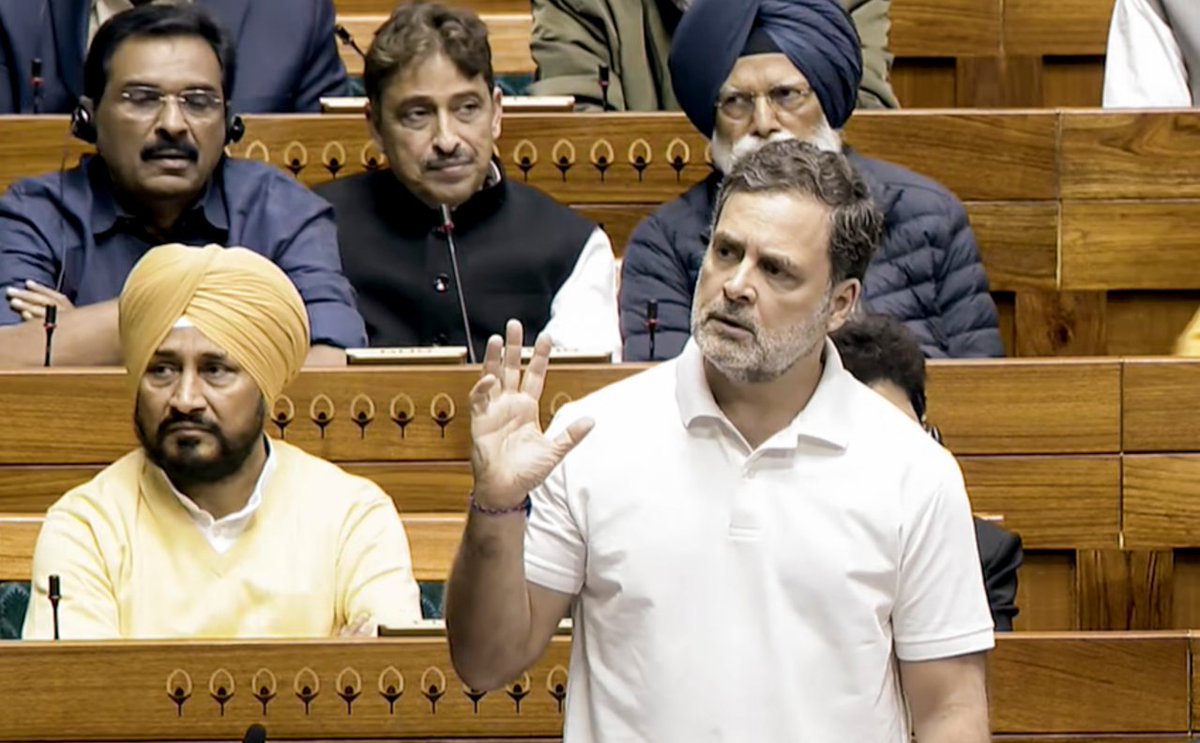

Don't you feel guilty about selling Bharat Mata Rahul Gandhi criticizes the US accord and the Center
Speaking in the Lok Sabha following days of deadlock, Rahul Gandhi criticized the Central government, led by Prime Minister Narendra Modi, for the recently concluded trade agreement with the United States, saying the administration should be embarrassed of it. In a vicious attack, Gandhi said that the Center "sold India" and that the government was endangering farmers' livelihoods by permitting US goods to enter."India is no longer yours. Do you not feel guilty for selling India? In reference to the trade deal, he declared, "You have sold our mother, Bharat Mata." He added that it was a "wholesale surrender" in which the interests of farmers were jeopardized and India's energy security was given to America. Gandhi went on to say that Donald Trump would have been advised to treat India equally if an INDIA Bloc administration had negotiated the trade deal with the US."This is total capitulation. The fact that it is a capitulation by more than simply the prime minister makes it tragic. He has given up the 1.5 billion Indians' future. Gandhi claimed that he had given up the future in order to save the BJP's financial structure, which is the subject of a case in the US.Gandhi claimed that the farmers' interests had been compromised and that they were facing a "storm" as American agricultural products flooded Indian markets. Additionally, he claimed that the Indian textile sector is "finished."We are about to enter a period of unrest, and the country has been sold. The country is sold out. "Its farmers and data have been sold," Gandhi reaffirmed as he wrapped up his remarks.Following Rahul Gandhi's address, Union Parliamentary Affairs Minister Kiren Rijiju declared that no one could sell India and charged that the Congress party was undermining the nation. "Congress is sad because India is progressing," he stated, asserting that Prime Minister Narendra Modi is India's strongest PM. He claimed that before leaving Parliament, the Congress MP gave speeches full of falsehoods and unfounded accusations. Rijiju remarked, "He never stays back to hear the minister's response."It is regrettable that we lack a serious personality or a person with a serious character that would be appropriate for the role of opposition leader. Rahul Gandhi's lies will be refuted by our party both within and outside the House.
Published 11 Feb 2026 11:10 PM
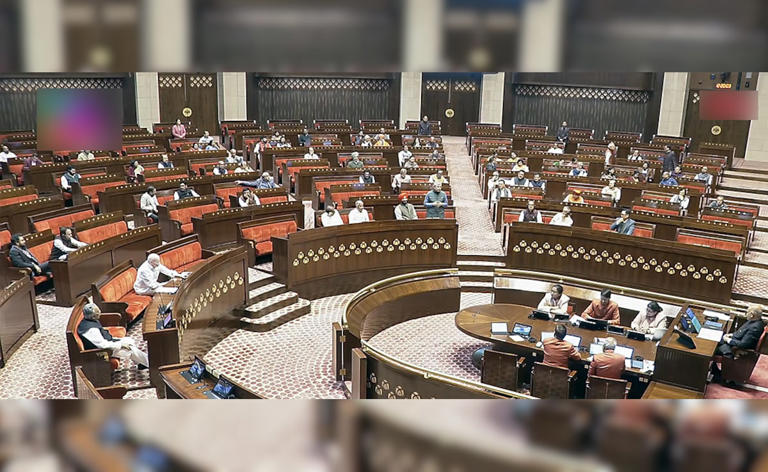

Updates for the 10th day of the Parliament Budget Session The Government-Opposition deadlock ends, and both Houses begin discussing the budget
The Lok Sabha began discussing the Union Budget on Tuesday, February 10, 2025, in the afternoon, signaling the end of the impasse between the opposition and treasury benches. The discussion had been delayed for days due to the opposition's insistence that LoP Rahul Gandhi be given the opportunity to speak on a number of topics. Following two adjournments, the House reconvened at 2 p.m., and the Speaker, Krishna Prasad Tenneti, invited Congressman Shashi Tharoor to commence the debate. The Thiruvananthapuram MP then began discussing the matter. Soon after opposition parties filed a notice to introduce a motion to oust Om Birla as Speaker of the Lok Sabha, the thaw occurred. Sukhendu Sekhar Roy of the Trinamool Congress emphasized that rising inequality could cause a "social upheaval," akin to what was seen in neighboring countries, as opposition parties criticized the government for failing to address issues like unemployment and inflation in the Union Budget during the budget discussion."If the situation is not brought under control, I fear that the country will soon experience social unrest similar to what has recently occurred in some of our neighboring countries. We have never witnessed such skyrocketing inequality between the rich, super rich, upper middle class, middle class, and the poor," Mr. Roy stated.
Published 11 Feb 2026 11:06 PM

India displays its entire armed might on the 77th Republic Day, with Operation Sindoor taking front stage on the Kartavya Path.
Top national leaders and prominent foreign visitors joined the festivities, which had as their subject 150 years of "Vande Mataram." About 10,000 distinguished guests saw the parade, which combined military might with cultural cohesion.At its 77th Republic Day parade on Monday, January 26, 2026, India put military might front and centre. Kartavya Path was transformed into a sweeping display of missiles, armour, mechanised columns, and combat aircraft, with a keen focus on weapon systems related to Operation Sindoor, the high-intensity military operation carried out in May of last year.The BrahMos supersonic cruise missile, Akash air defence system, Suryastra rocket launcher, and Arjun Main Battle Tank were among the major armament systems on exhibit at the start of the military demonstration, which emphasised India's focus on battlefield readiness and domestic defence manufacturing. A large portion of the equipment on exhibit was either used in Operation Sindoor, the confrontation with Pakistan that took place from May 7–10, or it was directly inspired by lessons learnt.A tri-services tableau featuring replicas of key weapon systems used during the operation was a big draw. A glass-cased integrated operational command centre served as its focal point, providing a visual representation of Operation Sindoor's execution through the coordinated use of systems including the S-400 air defence system and BrahMos. Akash and S-400 systems were depicted as offering a protective air-defense shield during the fight, while BrahMos missiles were predicted to perform decisive offensive attacks.Lt. General Bhavnish Kumar, a second-generation officer and General Officer Commanding, Delhi Area, led the procession. The Indian Army demonstrated a phased "Battle Array Format," including its airborne component, for the first time. The reconnaissance element included high-mobility reconnaissance vehicles after the historic 61 Cavalry in active battle uniform. Flying in Prahar formation, the domestic Dhruv Advanced Light Helicopter and its armed counterpart Rudra displayed aerial battlefield shaping.
Published 27 Jan 2026 09:07 PM
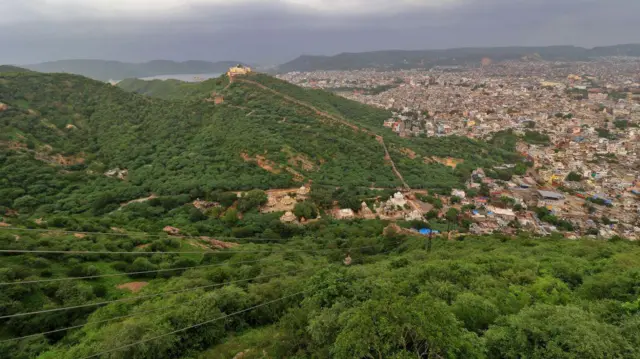

Why rising demonstrations are centered around India's Aravalli hills
The Supreme Court's redefinition of the Aravalli hills, one of the oldest geological formations in the world, which encompass the states of Rajasthan, Haryana, Gujarat, and Delhi, has sparked protests throughout northern India. Any landform rising at least 100 meters (328 feet) above the surrounding terrain is considered an Aravalli hill under the revised definition, which the court adopted in response to proposals from the federal government. An Aravalli range consists of two or more of these hills within 500 meters of one another, as well as the terrain in between. Environmentalists contend that classifying Aravalli hills according to height runs the risk of leaving many lower, scrub-covered but ecologically significant slopes vulnerable to mining and development. However, according to the federal government, the new definition is intended to increase uniformity and reinforce regulations rather than weaken rights.Protests have erupted across northern India after the Supreme Court redefined the Aravalli hills - one of the world's oldest geological formations spanning the states of Rajasthan, Haryana, Gujarat, and the capital, Delhi.
Published 22 Dec 2025 10:25 PM


Government News
Government News & Trends where we share you the latest updates under the government authorities globally starting from India to USA, China, Russia, Pakistan, UK and many more nations.


Supreme Court to Hematochal Pradesh Rebel MLAs Case on Tuesday
On Tuesday, the six rebel Congress MLAs from Himachal Pradesh will present their case to the Supreme Court. The MLAs had contested the Speaker's disqualification after they cast cross-party votes in the most recent Rajya Sabha elections in Himachal Pradesh. The plea will be heard by a bench consisting of Justices Sanjiv Khanna, Dipankar Datta, and Prashant Kumar Mishra. They were disqualified on February 29 by Speaker Kuldeep Singh Pathania for "defying" the Congress whip's mandate that they be present in the House and cast votes on the budget.In the Rajya Sabha election on February 27, the rebels had cast their votes in support of BJP candidate Harsh Mahajan. Cross-voting was the reason senior Congress leader Abhishek Singhvi lost the Rajya Sabha election.Rajinder Rana, Sudhir Sharma, Inder Dutt Lakhanpal, Devinder Kumar Bhutoo, Ravi Thakur, and Chetanya Sharma are the disqualified MLAs. The Himachal Pradesh assembly's effective strength decreased from 68 to 62 after their disqualification, and the number of Congress MLAs decreased from 40 to 34.An MLA was disqualified for the first time in Himachal Pradesh for violating the anti-defection law, which was designed to prevent defections. The Speaker declared on February 29 that the six MLAs would be removed from office due to their disobedience of the party whip and the anti-defection law. He declared that they were no longer House members, effective right away. The Parliamentary Affairs Minister filed the petition to remove them from office. Representing the rebel Congress MLAs, senior attorney Satya Pal Jain had claimed that they had only received the show-cause notice and not the copy of the petition or the annexure. Additionally, he emphasized that while responding to the notice was required to be done within seven days.Any elected member who willingly resigns from their political party, votes in the House, or abstains from voting in defiance of directives from their political party faces disqualification under the anti-defection law. The Speaker said that although the rebel MLAs had signed the attendance register, they had not voted on the budget. They received emails and notices via WhatsApp for disobeying the whip, asking them to come to the hearing.


Electoral Bond Details Readily Available; SBI Has Made Up Excuse For Not Complying
Former finance secretary Subhash Chandra Garg, who was economic affairs secretary when electoral bonds were first introduced, says that the State Bank of India needs “not more than a day” to make available the electoral bond information the Supreme Court has asked the bank to give to the Election Commission. Garg says “this information is readily available”, adding, “it is available at the click of a button”.In an interview to The Wire, Garg says that the State Bank of India has either deliberately misconstrued or failed to understand the simple nature of the six bits of information that they are required to give to the Election Commission and, instead, the bank claims that it has been asked to collate different bits of information which it was not asked to do. In other words, the bank has made the simple things required of it seem more complicated and long drawn out than is the case. This has given the SBI the basis on which to argue that it needs three and a half months more, pushing the deadline to June 30. Garg explained that the Supreme Court simply asked for six simple bits of information: who purchased the bonds, the date and the amount and also which party received the bonds, when they were encashed and the amount. This information is readily available. The electoral bond guidelines of 2018 themselves require that it should be given to any court when demanded and Justice Deepak Gupta has revealed that he was part of a Supreme Court bench which in 2019 ordered the bank to maintain such records. Garg also said he believes that in 2019 details of electoral bonds sold up to that date were given to the Supreme Court in a sealed envelope. At the time the bank did not need or ask for extra time. Why do they need extra time to give similar details for the period post 2019? Garg believes that by failing to meet the March 6 deadline set up by the Supreme Court, the State Bank of India is already guilty of contempt of court. In fact, the Association for Democratic Reforms has today filed a contempt case against the SBI. Has this become a test case for the SBI’s image and integrity? How embarrassed will the management of the SBI be today? What would be the impact if the bank is found guilty of contempt? Those are some of the other issues touched upon in this interview.
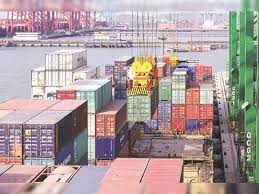

Boost GI products as premium goods globally to boost exports: Experts
The government should promote GI (Geographical Indications) products like Kala namak, rice, and Nagpur oranges as premium offerings on the global stage to boost exports of these items as they hold huge potential in different countries, according to experts.They said that a key weakness of Indian GI products compared to similar international goods is the lack of strong marketing and global brand recognition.Many Indian GI products, despite their unique quality and cultural significance, are not as well-known internationally, Global Trade Research Initiative (GTRI) Founder Ajay Srivasatava said. He said that this is due to inadequate branding, promotional activities, and limited access to global markets.Additionally, issues related to consistent quality assurance and the efficient management of GI tags can also hinder the potential for Indian GI products to compete effectively on the international stage. "Strengthening these areas could significantly enhance the global presence and market value of Indian GI products," Srivastava said.Great Mission Group Society (GMGS), a non-government organisation that works on such goods, said there are thousands of products in India which can be categorised as GIs as they would benefit local communities and preserve the nation's heritage. Founder and Chairman of GMGS Ganesh Hingmire said the society has so far filed applications seeking GI tags for as many as 89 products and out of that 61 have been published or categorised. "I would like to suggest the government to take steps to fast track the process of granting GI tags to Indian goods," he said, adding that this would help increase the income of communities who are producing those items besides the country's boosting exports as such products hold huge potential in international markets.Measures that are there at present to promote GIs include promotional campaigns, participation in international fairs, quality enhancement measures, legal protection, and the exploration of e-commerce platforms to broaden market access. Financial and technical support is extended to GI producers for capacity building and marketing, fostering a conducive ecosystem for these goods.Srivastava said that steps like implementing strict quality control and establishing traceability systems to meet international standards; developing brand identities and targeted marketing strategies for specific markets; using online marketplaces for wider accessibility; and encouraging partnerships between the government, industry bodies, would help boost exports of these items.Once a product gets this tag, any person or company cannot sell a similar item under that name. This tag is valid for a period of 10 years following which it can be renewed. The other benefits of GI registration include legal protection for that item, prevention against unauthorised use by others, and promoting exports. A GI is primarily an agricultural, natural or a manufactured product (handicrafts and industrial goods) originating from a definite geographical territory. Typically, such a name conveys an assurance of quality and distinctiveness, which is essentially attributable to the place of its origin.


Scrap 5% Customs duty on newsprint to manage operation cost: INS to govt
The Indian Newspaper Society has urged the government to scrap the five per cent Customs duty on newsprint to allow publishers to manage their operational costs more effectively.In a statement, the INS said a combination of factors affecting the price and availability of newsprint -- geopolitical uncertainties, logistics, rupee depreciation and Customs duty -- have created a formidable burden for publishers in the country. The escalations in the conflict in West Asia, as well as the conflict between Russia and Ukraine, have significantly affected the global supply chain, including for newsprint, the organisation said in its statement issued here on Monday. The Indian Newspaper Society (INS) urgently appealed to the government to reconsider the imposition of five per cent Customs duty on newsprint. "This measure, if withdrawn, would provide much-needed relief to the print media industry, allowing publishers to manage their operational costs more effectively and ensure the continued dissemination of credible news and information to the public," INS president Rakesh Sharma said in the statement. It said the Red Sea issue, where cargo ships are being continuously targeted, has further exacerbated the situation, leading to disruptions in the transportation of essential commodities, including newsprint. Resultant, the newsprint suppliers are cancelling the earlier confirmed orders of the publishers, the statement said.Many newsprint mills in India and across the world have either suspended or ceased their operations, causing concerns about the supply of newsprint in India.The declining value of the Indian rupee has compounded these challenges and added "pressure on import-dependent industries like the print media sector", it said. "The fluctuating currency exchange rates contribute to the rising costs of importing newsprint, thereby straining the financial viability of newspapers and publications," the INS statement said."It is pertinent to mention here that survival of print media industry is crucial for the largest democracy of the world, as we not only serve as a vital medium for disseminating knowledge and information at low and affordable costs to the common public but also contribute significantly to the Government's communication efforts, informing citizens about policies and social welfare programs," it said.The INS said in an era of widespread online misinformation, print media retains a commendable level of trust and credibility, distinguishing itself through reliable editorials, comprehensive reporting, and widespread readership.
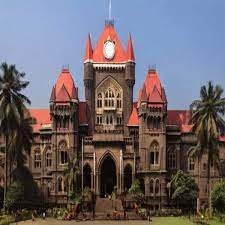

Education is considered pious in our culture, but has now become unaffordable: HC
Mumbai: Education, which is considered pious in the Indian culture, has now become unaffordable, the Bombay High Court has said noting it is the state's constitutional responsibility to ensure quality education reaches everyone. A division bench of Justices A S Chandurkar and Jitendra Jain made these observations while refusing to quash decisions taken by the Maharashtra government to grant permission to two organisations to set up educational institutions in Pune. The HC in its February 21 order said the court is not an expert in education policy matters and state government is the best authority to select the best and mere power to choose cannot be termed as arbitrary."Pune is known as the 'Oxford of the East' for decades and it has attracted students not only from India but other countries as well. This has resulted in Pune being a hub of educational institutions," the HC noted.With the passage of time and due to growth of the city, there has been a huge growth and competition in setting up of colleges and schools not only in the city of Pune but also around its periphery, it said. In such circumstances, it is the state's constitutional responsibility to ensure quality education reaches one and all to achieve growth and development of humanity, it added.The court dismissed the two petitions, filed by the Jagruti Foundation and the Sanjay Modak Education Society, challenging decisions taken by the state government last year refusing to grant them permission to set up educational institutions in Pune.
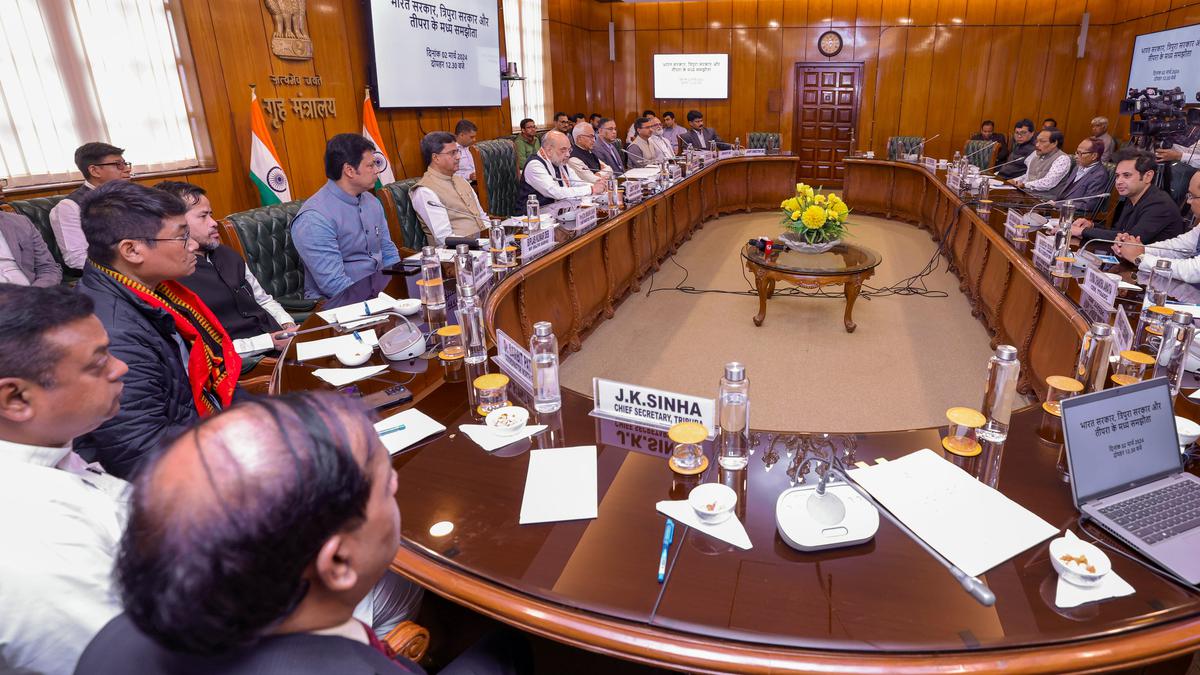

TIPRA elated after signing tripartite agreement to address tribal issues in Tripura
The government of India, the government of Tripura, and the Tipraha Indigenous Progressive Regional Alliance (TIPRA) signed a tripartite agreement on March 2 to address the issues faced by the indigenous people of Tripura, who make up 33% of the population. The signing ceremony was attended by Union Home Minister Amit Shah among others.The agreement contains the formation of a joint working committee to resolve issues related to the history, land rights, political rights, economic development, identity, culture, and language of the indigenous people of the State. TIPRA, also known as TIPRA Motha, has agreed to refrain from any form of protest until a solution is reached in a timely manner. The agreement was signed by TIPRA founder and royal scion Pradyot Bikram Manikya Debbarma, party President Bijoy Kumar Hrangkhawl and Leader of the Opposition in the State Assembly Animesh Debbarma on behalf of their party. Chief Secretary J.K. Sinha and Additional Secretary (NE) of the Ministry of Home Affairs Piyush Goyal represented the Tripura government and the Central government in the agreement. Union Home Minister Amit Shah, Tripura Chief Minister Dr. Manik Saha, and two tribal Ministers of his cabinet - Bikash Debbarma and Sukla Charan Noatia were present at the signing event. The Chief Minister and his cabinet colleagues had travelled to New Delhi the previous evening following progress in talks between the TIPRA delegation and MHA officials.


First technical team from India arrives in Maldives; Massive fire kills 43 in Dhaka, and more
The government has confirmed that a team of Indian technical personnel have landed in Maldives to replace military troops that have been operating aircraft there. The development indicates a compromise between the Modi government and the recently elected Muizzu government on the contentious issue of Indian troops stationed in the Maldives that had become the target of the “India Out” campaign run by the ruling party. As the Manipur Assembly has passed a resolution to urge the Union Government to abrogate the suspension of operations (SoO) pact with Kuki-Zo insurgent groups, in effect since 2008, suspense prevailed over the extension of the agreement. The 10 Kuki-Zo-Hmar legislators in the 60-member Assembly were not present in the House when the resolution was passed. The slogan ‘Abki Baar, 400 Paar (This time, above 400)’ was not coined by the ruling Bharatiya Janata Party (BJP) but by the public itself to bring back the current government, Prime Minister Narendra Modi has said. “Today, there is only one thing being heard everywhere: ‘Abki Baar, 400 Paar’. This has happened for the first time that the public itself has elevated a slogan like this to bring back its beloved government. It has not been given by the BJP,” he said, virtually addressing the ‘Viksit Bharat, Viksit Madhya Pradesh‘ programme, a part of the Centre’s Viksit Bharat Sankalp Yatra. Making a flurry of revisions in the economy’s growth estimates, the National Statistical Office (NSO) on Thursday raised India’s real GDP growth esimate for this year to 7.6% from the 7.3% projected last month. It also scaled down its 7.2% growth estimate for 2022-23 to 7%, and raised its 2021-22 estimate from 9.1% to 9.7%. The Gross Value Added (GVA) in the economy is projected to rise 6.9% this year, with the NSO downgrading last year’s GVA growth to 6.7% from 7%. GDP growth for the first two quarters of this year was raised to 8.2% and 8.1%, further rising to 8.4% for the the October to December 2023 quarter (Q3). A fire at a six-story commercial building in Dhaka killed at least 43 people and injured dozens of others, Bangladesh’s health minister said on March 1. The country’s Health Minister Samanta Lal Sen said the fire broke out late on February 29 in the building in Dhaka’s Bailey Road area. Firefighters rescued survivors and pulled out dead bodies, and by early Friday, at least 43 people died and at least 22 others were being treated, he said. Firefighters said the fire began in a popular restaurant on the first floor of the building, and that many people were trapped by the fire.
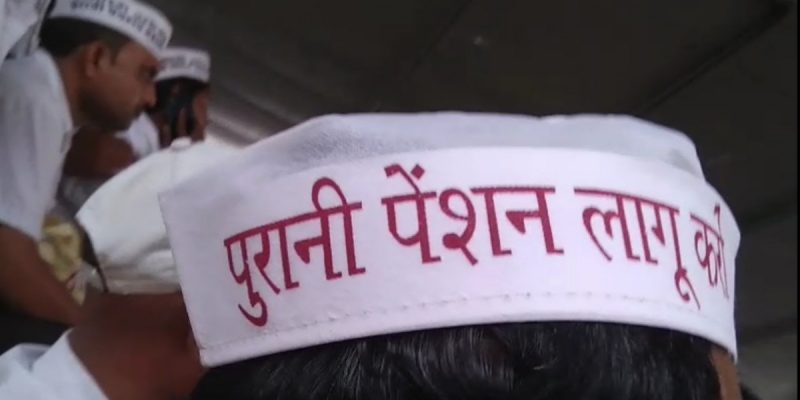

Government Employees Platform Plans Strike From May 1 Over OPS Demand
A group of Union and state government employees announced they will go on indefinite strike starting on Labour Day (May 1) this year to demand the restoration of the old pension scheme (OPS), The Hindu reported.The Joint Forum For Restoration of Old Pension Scheme (JFROPS), which was described as a platform of trade unions and associations working among Union and state government employees, said it had decided to serve strike notices starting March 19. Under the OPS, which was retired in 2004, retired government employees received half their last-drawn salary every month as a pension. The government concerned would foot the entire amount. The National Pension Scheme (NPS) replaced the OPS and involves the employee contributing 10% of their basic salary and the government contributing 14% into a corpus, which can be invested into different types of funds.How much an employee would receive upon retirement depends on the market return on these investments. Shiv Gopal Mishra, who is convenor of the JFROPS and is among the leaders of a railway workers’ union, told The Hindu that the decision to go on strike was taken after talks with the Union government had broken down. “We held several protests demanding restoration of OPS. We wrote letters to prime minister and finance minister urging them to restore the OPS. We have also been raising this issue in the JCM [joint consultative machinery] meetings, but the government ignored our demands and we are now forced to go on an indefinite strike,” Mishra was quoted as saying. The Hindu also cited government employees’ unions as claiming that ahead of the call for a strike, ballots conducted in various government departments suggested that nearly 100% of employees supported a strike.They have also argued that pensioners were worse off under the NPS because it does not hike pensions on a regular basis in order to correct for inflation. Some state governments have decided to restore the OPS for their employees.But the Reserve Bank of India has said that going back to the OPS would increase governments’ liabilities and put their financial security at risk.The Union government said in parliament in December that it does not plan on restoring the OPS. It has also warned its employees from going on strike before and argued that their right to form associations did not include a guaranteed right to go on strike.When Mishra was asked by The Hindu how the model code of conduct for the general elections would affect their planned strike, he said they wanted the issue to be discussed by the people. “This is an issue that involves lives of crores of people. Let the people discuss and decide on our demands. Even if the model code of conduct comes in picture, the Cabinet will be there, the Cabinet secretary will be there and they can take a decision on our demand,” he told the newspaper.Another employees’ union leader was cited as saying that ‘all unions’ except the pro-government Bharatiya Mazdoor Sangh would take part in their planned strike.
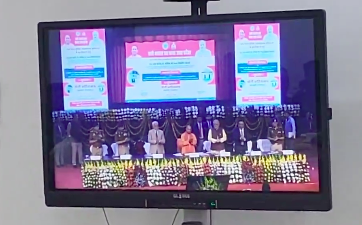

In Uttar Pradesh, Journalist Booked For Defamation For Posting Wrong Images on X
As Uttar Pradesh Chief Minister Adityanath inaugurated a building in Ghaziabad on Wednesday, February 28, police booked a journalist for defamation after he allegedly posted wrong information on social media related to the construction of the premises, Times of India reported. According to the report, Adityanath inaugurated a building meant to house police personnel on the premises of Khora police station around noon. Meanwhile, Lokesh Rai, a Ghaziabad-based journalist working with a news channel, posted a a video of the inauguration along with photos that showed an under-construction building on social media platform X (previously called Twitter). Implying that the images were of the same building that was being inaugurated, Rai alleged that it was not ready yet. Subsequently, around 15 minutes later, a video of another building was posted from the official account of the Ghaziabad Police on X which they claimed that the chief minister was inaugurating. Rai deleted his post by 1pm. Speaking to Times of India, the journalist said that it was a “small mistake” and his post was “not intentionally” wrong. “Before registering an FIR, senior police officers called me and asked to delete the post because the information was wrong. A few minutes ago, I learnt that an FIR was registered in the matter. I am looking into it,” Rai informed the daily. “The accused had not checked the information and posted on X by tagging UP Police, DGP and other officials,” the DCP was quoted by Times of India. The police alleged that the post was an attempt to defame the Adityanath government and Ghaziabad police, as per the report. An FIR was registered against the journalist by Khora police station sub-inspector Lokesh Kumar under sections 500 (punishment for defamation), 501 (printing or engraving matter known to be defamatory) of the IPC and relevant provisions of the IT Act. In 2023, India has slipped to the 161st rank in terms of press freedom out of 180 countries ranked, according to the World Press Freedom Index released by Reporters Without Borders (RSF).


AAP must leave its headquarters by June 15th, per a Supreme Court order.
The Aam Aadmi Party of Arvind Kejriwal will have to leave its headquarters, which are located on a plot of land designated for the High Court. The good news is that you still have until June 15 to act. The Supreme Court gave the party a long deadline because of the upcoming Lok Sabha elections, emphasizing that this is an encroachment case. The party may now submit an application for alternative land to the Land and Development Office of the Center.The bench, which included Chief Justice D Y Chandrachud and Justices J B Pardiwala and Manoj Misra, stated, "We would request the L&DO to process the application and communicate its decision within a period of four weeks." The bench continued, "AAP has no legal right to remain on the land." The Delhi High Court was granted land in February to expand its operations and build more courtrooms for the Rouse Avenue location. The court had noticed that the AAP was intruding on this land. When considering a case involving the nation's judicial system, the highest court took notice of the issue.The state government promised at a meeting on February 15 that the plot would be removed in two months if a substitute plot was provided, in response to a court order. However, the situation remained unchanged. According to India's Chief Justice, DY Chandrachud, nobody has the authority to impose law on others. "It is absurd for any political party to sit on it. Every intrusion will be eliminated... The land should be given to the High Court so that it can be utilized by the general public and citizens, Justice Chandrachud stated.


Article 21: The Constitutions Soul, with Citizens Liberty Supreme
According to the Supreme Court, Article 21 is the essence of the Constitution because it protects citizens' rights to liberty, which are so valuable that a person would lose them if the high court takes too long to decide cases pertaining to it. Amol Vithal Vahile, a prime accused in the murder of a corporator in Maharashtra, was granted bail by the Bombay High Court on January 29 following prodding from the top court, according to a bench of Justices B R Gavai and Sandeep Mehta.In a recent ruling, the bench stated that it is evident that prior to this court's order being issued on January 29, 2024, the high court had dismissed the bail application on one or more grounds rather than considering it on its merits.It goes without saying that Article 21 of the Indian Constitution is its core because it upholds the fundamental right to liberty for all citizens. It stated, "Depriving the party of their precious right guaranteed under Article 21 of the Constitution of India would mean not reaching a quick decision and brushing off the issue on one or the other basis pertaining to a citizen's liberty." The bench stated that it has encountered numerous cases from the Bombay High Court in which the applications for bail and anticipatory bail were not resolved promptly. The bench mentioned one instance where the application for anticipatory bail was pending for over four years. "We have also encountered many cases where the judges find an excuse to reroute the case on unrelated grounds rather than rendering a decision based on the merits of the case. As a result, we ask the chief justice of the Bombay High Court to communicate our request to all judges who have criminal jurisdiction so that the issue of bail and anticipatory bail can be decided as soon as possible," the bench stated.It requested that the Supreme Court's Registrar (Judicial) forward this directive to the High Court's Registrar (Judicial), who will present it to the Bombay High Court's chief justice. The bench stated on January 29 that, despite the fact that Vahile had been detained for more than seven years, on March 30, 2023, the high court had ordered him to appear before the trial court for regular bail.


SEA urges Centre to not extend ban on export of de-oiled ricebran
The Solvent Extractors’ Association of India (SEA) has asked the Indian Government to not extend the ban on the export of de-oiled rice bran beyond March 31.In a letter to Piyush Goyal, Union Minister of Commerce and Industry, Consumer Affairs, Food and Public Distribution; and Parshottam Rupala, Union Minister of Fisheries, Animal Husbandry and Dairying; the President of SEA, Ajay Jhunjhunwala, said the total export of de-oiled rice bran constitutes only around 6 per cent of the production. The restriction has adversely affected processors and exporters along with paddy farmers, hindering them from realising better returns on their produce, he said. The government banned the export of de-oiled rice bran in a notification dated July 28, 2023, effective until November 30, 2023. This was further extended till March 31, 2024 in a notification dated December 8, 2023. Stating that processing of ricebran has picked up with the commencement of new season in November, he said availability of de-oiled ricebran has improved. This is evident from the reduction of price from ₹18,000 a tonne on July 28 2023 (the date of issuing notification) to ₹12,500 a tonne at present. Mentioning that the industry benefits from the export of de-oiled rice bran, he said easy clearance of meal leads to sustained processing, leading to better capacity utilisation, continuous oil availability, increased employment, and significant value addition along with valuable foreign exchange. India, which has successfully developed export market for de-oiled rice bran over the last 30 years, primarily serves Vietnam, Thailand, Bangladesh and other Asian countries. “An abrupt change in export policy has given opportunity to our competing countries like Sri Lanka, Bangladesh to capture Vietnam market for de-oiled ricebran and the market will be lost in no time,” he said. Eastern States, including West Bengal, are a significant producer of de-oiled ricebran. Since the cattle feed industry remains underdeveloped in this part of the country, there is limited demand for de-oiled ricebran in eastern India, he said. “The exorbitant local freight charges to move de-oiled ricebran from eastern India to south or west India makes export the principal means of disposal for de-oiled ricebran in the region. Since export is banned, ricebran processors in Eastern India are facing the prospect of shutting down their operations, adversely impacting the rice milling industry and reducing ricebran oil production,” Jhunjhunwala said. Though export restriction on de-oiled ricebran was imposed in July 2023 to ease milk prices, there is almost no reduction in milk prices across the country since this ban, he said. This is because the cost component of de-oiled ricebran in milk price is very nominal. “We are still of the view that continuing this ban will not support reduction in milk prices but will continue to negatively impact the ricebran processors and de-oiled ricebran exporters,” he said, and requested the government not to extend the ban beyond March 31.
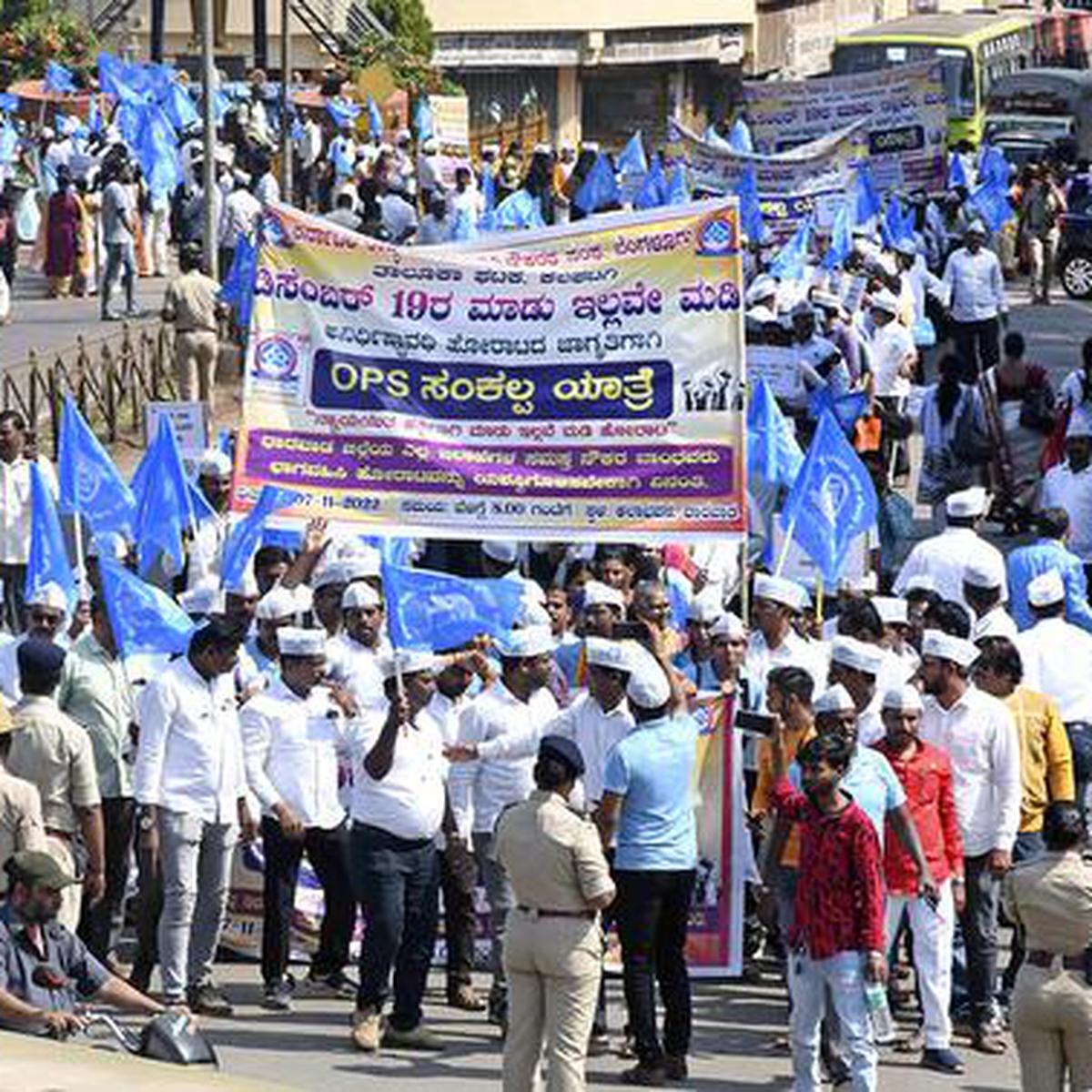

Government Employees Platform Plans Strike From May 1 Over OPS Demand
A group of Union and state government employees announced they will go on indefinite strike starting on Labour Day (May 1) this year to demand the restoration of the old pension scheme (OPS), The Hindu reported.The Joint Forum For Restoration of Old Pension Scheme (JFROPS), which was described as a platform of trade unions and associations working among Union and state government employees, said it had decided to serve strike notices starting March 19. Under the OPS, which was retired in 2004, retired government employees received half their last-drawn salary every month as a pension. The government concerned would foot the entire amount. The National Pension Scheme (NPS) replaced the OPS and involves the employee contributing 10% of their basic salary and the government contributing 14% into a corpus, which can be invested into different types of funds. How much an employee would receive upon retirement depends on the market return on these investments. Shiv Gopal Mishra, who is convenor of the JFROPS and is among the leaders of a railway workers’ union, told The Hindu that the decision to go on strike was taken after talks with the Union government had broken down. “We held several protests demanding restoration of OPS. We wrote letters to prime minister and finance minister urging them to restore the OPS. We have also been raising this issue in the JCM [joint consultative machinery] meetings, but the government ignored our demands and we are now forced to go on an indefinite strike,” Mishra was quoted as saying.The Hindu also cited government employees’ unions as claiming that ahead of the call for a strike, ballots conducted in various government departments suggested that nearly 100% of employees supported a strike.They have also argued that pensioners were worse off under the NPS because it does not hike pensions on a regular basis in order to correct for inflation. Some state governments have decided to restore the OPS for their employees. But the Reserve Bank of India has said that going back to the OPS would increase governments’ liabilities and put their financial security at risk. The Union government said in parliament in December that it does not plan on restoring the OPS. It has also warned its employees from going on strike before and argued that their right to form associations did not include a guaranteed right to go on strike. When Mishra was asked by The Hindu how the model code of conduct for the general elections would affect their planned strike, he said they wanted the issue to be discussed by the people. “This is an issue that involves lives of crores of people. Let the people discuss and decide on our demands. Even if the model code of conduct comes in picture, the Cabinet will be there, the Cabinet secretary will be there and they can take a decision on our demand,” he told the newspaper. Another employees’ union leader was cited as saying that ‘all unions’ except the pro-government Bharatiya Mazdoor Sangh would take part in their planned strike.
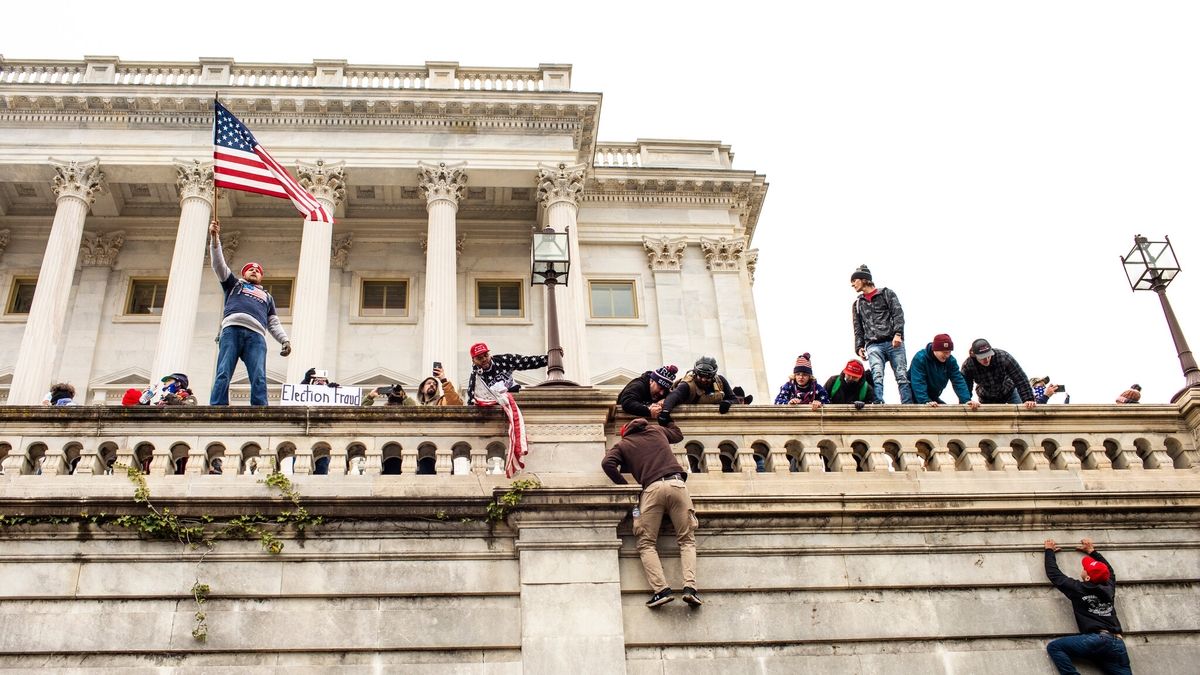

In Uttar Pradesh, Journalist Booked For Defamation For Posting Wrong Images on X
As Uttar Pradesh Chief Minister Adityanath inaugurated a building in Ghaziabad on Wednesday, February 28, police booked a journalist for defamation after he allegedly posted wrong information on social media related to the construction of the premises, Times of India reported. According to the report, Adityanath inaugurated a building meant to house police personnel on the premises of Khora police station around noon. Meanwhile, Lokesh Rai, a Ghaziabad-based journalist working with a news channel, posted a a video of the inauguration along with photos that showed an under-construction building on social media platform X (previously called Twitter). Implying that the images were of the same building that was being inaugurated, Rai alleged that it was not ready yet. Subsequently, around 15 minutes later, a video of another building was posted from the official account of the Ghaziabad Police on X which they claimed that the chief minister was inaugurating. Rai deleted his post by 1pm. Speaking to Times of India, the journalist said that it was a “small mistake” and his post was “not intentionally” wrong. “Before registering an FIR, senior police officers called me and asked to delete the post because the information was wrong. A few minutes ago, I learnt that an FIR was registered in the matter. I am looking into it,” Rai informed the daily.“The accused had not checked the information and posted on X by tagging UP Police, DGP and other officials,” the DCP was quoted by Times of India. The police alleged that the post was an attempt to defame the Adityanath government and Ghaziabad police, as per the report. An FIR was registered against the journalist by Khora police station sub-inspector Lokesh Kumar under sections 500 (punishment for defamation), 501 (printing or engraving matter known to be defamatory) of the IPC and relevant provisions of the IT Act. In 2023, India has slipped to the 161st rank in terms of press freedom out of 180 countries ranked, according to the World Press Freedom Index released by Reporters Without Borders (RSF).


India Receives Its Second Space Port, Excitement for Rocket Startups
Today, Prime Minister Narendra Modi will lay the foundation stone for India's second launch site, Kulasekharapatnam, which is situated in the Thoothukudi district of Tamil Nadu. This will significantly advance the nation's spacefaring endeavors. The new launch pad has the small rocket community in India, including ISRO and startups, giddy with anticipation for more efficient small rocket launches.Up until now, all rockets used to launch satellites into orbit were launched from the nation's single spaceport, which was located in Sriharikota, Andhra Pradesh. To date, India has launched 95 rockets from Sriharikota, 80 of which have been declared successful. Renamed the Satish Dhawan Space Center, it began modestly in 1971 with the launch of a sounding rocket, the RH-125. The center is currently getting ready for India's human spaceflight project, Gaganyaan, to launch. Satish Dhawan Space Center has a distinct advantage—it is one of the world's southernmost rocket ports—but it also has a major disadvantage. The land mass of Sri Lanka presents a safety concern for rockets launching in polar or southerly directions because it keeps rocket debris from landing on foreign soil.In order to lessen this, ISRO has traditionally carried out a unique manoeuvre referred to as the "dogleg maneuver" in order to avoid Sri Lanka when conducting direct southward launches. Although there is a penalty for this maneuver, it can be tolerated for larger rockets with sufficient fuel, such as PSLV, GSLV, and LVM-3. But the advantages of using Sriharikota as the preferred launch site become clear as India gains proficiency in the launch of smaller rockets, such as the Small Satellite Launch Vehicle (SSLV), which can carry satellites weighing up to 500 kilograms. According to an ISRO rocket specialist, it becomes almost impossible to launch small rockets from Sriharikota in polar or southern trajectories with payloads weighing between 500 and 700 kg. As a result, Kulasekharapatnam has been chosen as the second launch site to address these issues because of its expanding small rocket market.


Survey Says RBIs Paytm Action Won Affect Merchants Trust
Merchants' trust in the payment platform is unaffected by the severe limitations the Reserve Bank of India (RBI) placed on Paytm Payments Bank (PPBL), according to a survey done. According to Datum Intelligence, a Gurugram-based provider of business consulting and services, 59% of retailers still use Paytm and don't think the government crackdown will have an immediate effect on their business. The business conducted a survey with 2,000 business owners in 12 cities who accept payments through Paytm apps. According to a press release from Datum Intelligence, it was done between February 7 and February 15. Survey Says RBI's Paytm Action Won't Affect Merchants' Trust According to a Datum survey, 76% of retailers accept payments through Paytm. Merchants' trust in the payment platform is unaffected by the severe limitations the Reserve Bank of India (RBI) placed on Paytm Payments Bank (PPBL), according to a survey done. According to Datum Intelligence, a Gurugram-based provider of business consulting and services, 59% of retailers still use Paytm and don't think the government crackdown will have an immediate effect on their business. The business conducted a survey with 2,000 business owners in 12 cities who accept payments through Paytm apps. According to a press release from Datum Intelligence, it was done between February 7 and February 15. According to the survey, 21% of retailers are awaiting additional information The fact that a Paytm representative contacted them following the RBI ruling is what gives retailers their confidence. "After being contacted by a Paytm representative, 71% of merchants feel comfortable continuing to use Paytm for payments. According to the Datum Intelligence survey, only 11% of respondents are less confident about using Paytm for payments, and 14% of respondents are still looking for more information."Overall, the impact is limited on the merchant business and Paytm is engaging with merchants to reduce the damage and merchants are also waiting before deciding on alternatives," it added.
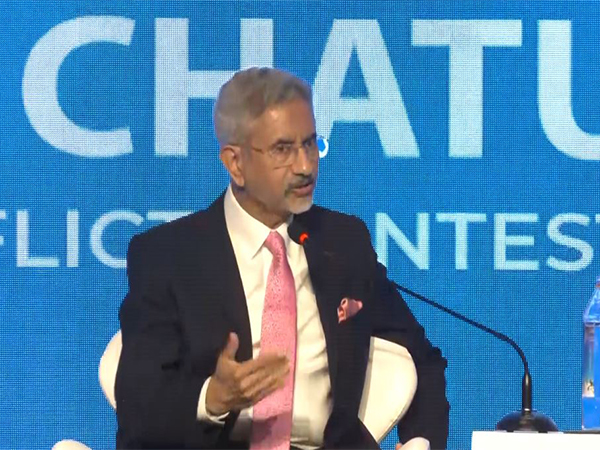

Makes sense to give Russia multiple options, says EAM S Jaishankar
It's important for Asian countries to engage with Russia at a time when the West has shut its doors on Moscow, External Affairs Minister S Jaishankar said on Friday.“Russia is turning more towards Asia and other parts of the world. It makes sense to give Russia multiple options,” Jaishankar said at a panel discussion at the ongoing Raisina Dialogues. He said Russia was a power with an enormous tradition of statecraft. “If we railroad Russia into a single option, and say that's the outcome, then you are making it a kind of a self-fulfilling prophecy." As the world prepares to mark the second anniversary of Russia’s Ukraine invasion this week, Moscow has become the largest supplier of crude oil to India, up from the ninth spot. In the first nine months of the current financial year (FY24), 34 per cent of India's crude oil imports came from Russia, up from 19.2 per cent in FY23. This comes even as Western powers have persuaded New Delhi to desist purchases from Russia. "Such powers would never put themselves into a single relationship of an overwhelming nature," Jaishankar said, when asked about Russia's perceived closeness to China, and whether that would work against India's interests going forward. Jaishankar also spoke about how arriving at and maintaining an equilibrium with China was going to be one of the biggest challenges for India-China ties. "Since the late 1980s we have had an understanding on the border precisely because it suited both of us. There was a departure on their side after 30 years," he said. On the economic front, Jaishankar said the economies of both nations were predicted to reach $50 trillion by around 2075, quoting JP Morgan data. "Both of us (China and India) are rising, obviously at different paces, with different starting points. The Chinese started off earlier, and much more intensely than we did. But it's in the nature of things that at some stage everybody flattens out," he said.
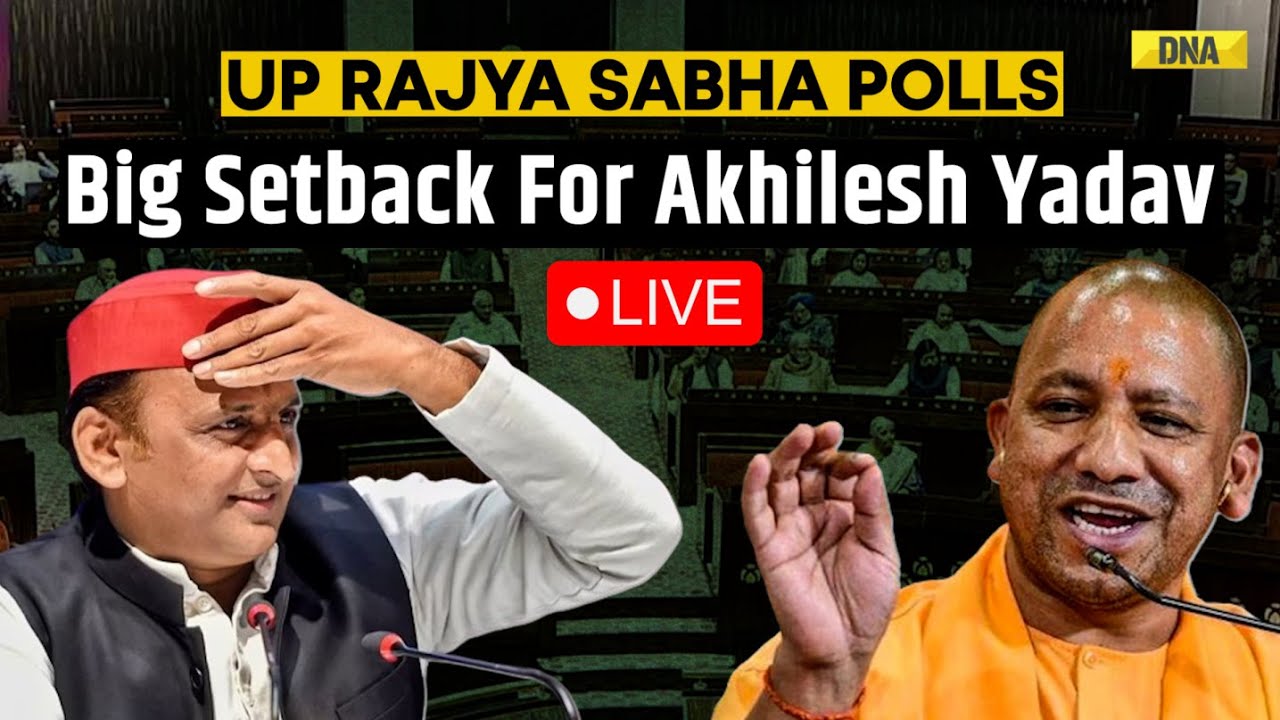

Rajya Sabha polls LIVE updates: Tight race in UP amid cross-voting
Rajya Sabha Election 2024 Live results: Congress and Samajwadi Party MLAs have cross-voted in droves during the Rajya Sabha polls, bringing the INDIA bloc under huge pressure ahead of the general election. The beneficiary is the BJP, which stands to gain two extra seats in the Upper House. BJP candidate Harsh Mahajan has won the lone Rajya Sabha seat from Himachal Pradesh. Karnataka counting ends; Congress wins 3, BJP wins 1 seat. Ajay Maken, G C Chandrasekhar, Syed Naseer Hussain (all Cong), Narayansa K Bhandage (BJP) win Rajya Sabha elections in Karnataka. Samajwadi Party (SP) chief whip Manoj Pandey has resigned from his post amid cross-voting in RS polls in UP state Assembly. Manoj Pandey is a legislator from Unchahar in Raebareli district. After the polling ended, the counting of votes has started in Karnataka, Himachal Pradesh, and Uttar Pradesh. Earlier, an FIR has been registered against the JD(S) leader contesting the Rajya Sabha elections in Karnataka, D Kupendra Reddy, and his aides at the Vidhana Soudha police station in Bengaluru, former chief minister H D Kumaraswamy said on Tuesday. In a high-stakes electoral fight in Uttar Pradesh, the Bharatiya Janata Party (BJP) has fielded eight candidates and the opposition Samajwadi Party (SP) three for the 10 Rajya Sabha seats. Both the parties have the required numbers to send seven and three members respectively unopposed to the Rajya Sabha, but the BJP has raised the stakes by fielding Sanjay Seth as its eighth candidate. Seth, a former SP leader, joined the saffron party in 2019. Voting for the 10 Rajya Sabha seats will be conducted todayy and the results will also be announced on the same day. In the 403-member state Assembly, the BJP and the SP are the two largest parties with 252 legislators and 108 legislators respectively. Forty-one leaders for 56 seats have already been elected unopposed. Elections are due in Uttar Pradesh, Karnataka and Himachal Pradesh for the remaining 15 seats. The SP has fielded Jaya Bachchan, retired IAS officer Alok Ranjan and Dalit leader Ramji Lal Suman for three Rajya Sabha seats. The saffron party has fielded RPN Singh, Chaudhary Tejveer Singh, Amarpal Maurya, Sangeeta Balwant, Sudhanshu Trivedi, Sadhna Singh and Naveen Jain. Ahead of the election for one Rajya Sabha seat in Himachal Pradesh, the BJP on Monday accused the ruling Congress of issuing whip to its members to pressurise them and stated that the legislators have been elected democratically and have the right to vote as per their wish. Leader of the Opposition Jai Ram Thakur stated that the Congress has issued a whip asking its MLAs to vote for party candidate Abhishek Manu Singhvi. Thakur argued tha tthe Election Commission of India had made it clear that whip can't be issued for the election.



















